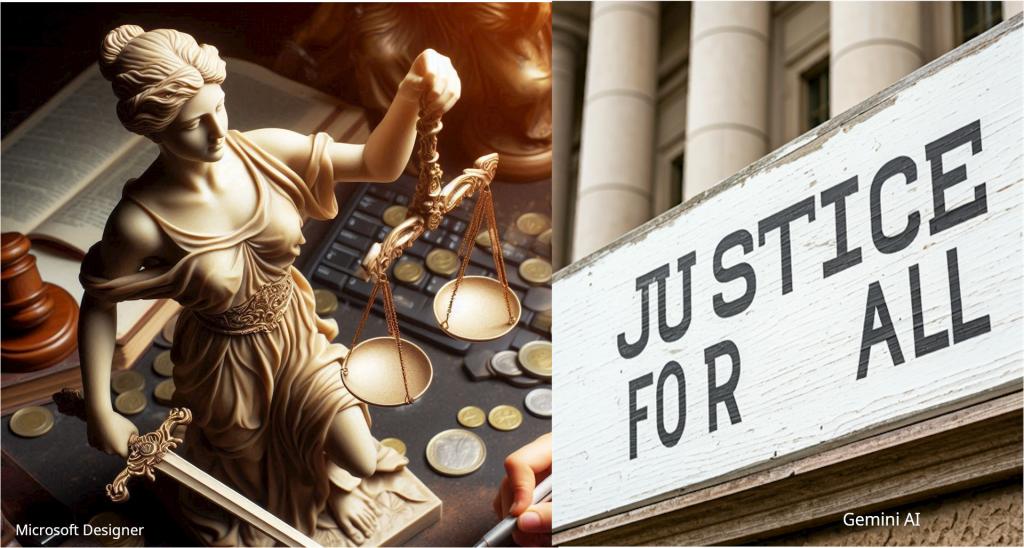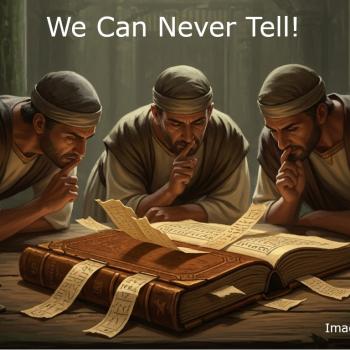Bridging the Divide: A Path to Unity
Some things keep me awake at night because they are bringing us all down, yet we can conquer them.
Our nation’s deep division is evident in our increasingly polarized political landscape and rising social unrest. While differences of opinion are inevitable, it’s crucial to find common ground and foster respectful dialogue. Majority rule with minority rights is a cornerstone of democracy, but we must strive to avoid oppression and promote peaceful coexistence.
Our investment in equality with each other will bring benefits to all.
How can we bridge this divide and create a more harmonious and equitable society?
This isn’t a pie in the sky talk. We can get there more easily than we think if we try.

Reference Verse:
“But let justice roll down like water and righteousness like an ever-flowing stream.” Amos 5: 24
Our nation is facing a destructive divide
As an independent voter, I see critical flaws on both sides of the political spectrum—and systemic issues that transcend party lines. My daughter, who spent over a decade living in the Netherlands, experienced a different political system—one that felt smoother and more cohesive. This year, she chose not to vote, believing our system is fundamentally broken.
She’s not alone. Many of us feel the same. In the 2024 election, three out of ten voters voiced a desire to see our political structure dismantled and rebuilt. A substantial percentage of Americans believe the country is heading in the wrong direction.
It’s time we acknowledge these issues and consider meaningful reform before they destroy a successful democracy.
Naming the problems that divide us
Economic issues dominated voters’ concerns this election, yet few truly understand the root causes. Who has the time or desire to delve deeply into economics? For most, the key measure is the state of their own finances.
Many feel excluded from the benefits of our economy, a sentiment that has persisted for decades—especially among rural communities far from urban centers.
For some, it’s the constant, jarring changes that feel out of touch with their values. For others, it’s the endless gridlock in Congress, or frustration around illegal immigration, which is often cited (rightly or wrongly) as a source of various problems.
Since the 1980s, I’ve watched many legislators leave Congress, deeming their efforts fruitless. Divisions within the public have fueled radical divides within Congress, blocking meaningful progress on key issues.
Ignoring these problems has allowed them to fester, leading to deepening rifts and a “my way or the highway” mentality. This stalemate prevents collaboration and compromises that could help bridge differences. As a result, no one is truly satisfied, and the cycle of frustration continues.
When we ignore problems and let them fester and boil over, we end up with sharp divisions that prevent harmonious working relationships in which differences of opinion can be settled. We end up with, “My way or the highway.” Stalemate. No one is pleased.
How do we end these deep divisions?
Not by ignoring them—doing so only deepens the rift. And not through endless debate, which often intensifies tensions and fuels a “winner-takes-all” mindset.
Instead, we need approaches that make solutions a win-win for everyone.
Congress used to operate this way. The majority party would propose legislation aligned with their goals, while the other party would introduce modifications to address their own concerns. Bills were passed through compromise, and both sides felt their voices were heard. This collaborative spirit fostered solutions, not stalemates.
To heal these divisions, we must revive that spirit of cooperation—one where progress benefits everyone, not just the victors.
This means fixing Congress. Groan! This seems like an impossible task, but it’s easier than we think.
I propose three things to get us beyond this divide
I thought of these prior to the election. They aren’t reactions.
International Day of Mourning
We need an international day of mourning for the US and for many other countries with the same problems where ignoring divisions and not accommodating others needs has led to radical influences in politics and religion.
The Yellow Jacket movement in France has few differences from US rural animosity. It started with fuel prices, but became a grassroots movement for economic justice, opposing what it sees as the wealthy urban elite and the establishment.
In Germany in 2024, “An openly right-wing extremist party has become the strongest force in a state parliament for the first time since 1949 ….” This has led to a divided government with parties that won’t work with the far right. Immigration and support for Ukraine were the divisive issues.
Far right extremists have influenced elections in several nations. This is deep crap and is dragging us all down.
A Call for Unity: A Path Forward
The growing political and social divisions plaguing nations worldwide demand immediate attention. We must acknowledge the detrimental impact of these divisions, which have fueled extremism and hindered progress.
An International Day of Mourning
To underscore the severity of this crisis, I propose an International Day of Mourning, led by churches and other institutions. This solemn occasion would provide an opportunity for global reflection on the consequences of division and the urgent need for unity. By openly acknowledging the harm caused by these divisions, we can foster empathy and a shared commitment to finding solutions.
This should be followed by a solutions day and meaningful effort to resolve these problems as I mention below.
A Day of Action for a Brighter Future
Following the solemn reflection of the International Day of Mourning, we must channel our collective energy into actionable solutions. A dedicated day for community dialogues, policy discussions, and grassroots initiatives can foster understanding, bridge divides, and pave the way for a more harmonious and equitable future.
By taking these steps, we can move towards a more harmonious and just future for all.
Addressing Systemic Dysfunction: A Path Forward
Our current political system is plagued by systemic issues that hinder effective governance. The two-party system, with its polarized ideologies and frequent gridlock, has created a climate of division and distrust, and an unproductive winner takes all mentality.
The influence of special interests exacerbates this dysfunction. The lack of political will to implement meaningful reforms maintains systemic dysfunction.
To address these systemic problems, everyone seems to know we need a comprehensive overhaul of our political system. But how do we accomplish this in a congress that won’t reform itself?
Each party has around a third of the population, while another third are independents who are the swing voters that decide elections. Other countries do it differently.
When the House, Senate, and President are of the same party, work gets done. When they are different parties, we have gridlock and no one is happy.
As a solution, we need a group of individuals to redesign our political system. They should study other democratic countries and recommend ways to fix this. They will have to find powerful ways to reform our Constitution and prevent political interference.
We can not only make change possible but also achieve it if we dedicate ourselves to the task.
Economic separation
Most people don’t know anything about how the economy works, so they are quick to blame the wrong people and are easily fooled by politicians who want to misuse them. So here is some real talk about inflation so we know where the real problems are.
By design, the US president and congress have little influence on the economy. Unfortunately the people vote their representatives out when they don’t like the economy.
When politicians get involved in the economy, things can go sour rapidly. For example, to help ease the economy through the Great Recession, Obama followed old notions of economics and put trillions into the economy through business. That boosted corporate profits, making investors wealthier, and did little for the economy. Investors simply put money back into the stock market and don’t spend it. The stock market isn’t the economy and does very little for it except crash it. The National Debt went way up.
Trump decided pumping money into the economy would help it through the Covid downturn. He at least put it in the right place. He made some investors wealthier, but also sent money to the people. Consumer spending is the key driver of the economy. Unfortunately, this triggered inflation, which takes years to tame. Trump could smile because people blamed Democratic policy because they were in power.
Inflation is a demon in our system, driven by business and the desire for high profits. The way business works is companies will adjust prices upward to get the most gain or profit. They stop raising prices when revenue starts to fall. As long as money is flowing into the economy through money pumped in or through wage growth, prices rise and inflation grows.
The Federal Reserve is responsible for controlling the economy and jobs. They do this primarily through interest rates on loans they make to banks. They also are responsible for controlling inflation, which is incredibly difficult to stop once it’s started. Interest rates are increased to curb inflation. These are the only tools they have.
The Fed doesn’t “print money.” Congress can authorize more US loans (treasury bonds) to put money into the economy through the US Treasury. Some call this printing money, but that’s ludicrous. Every penny has to be paid back. Overstimulating the economy is how inflation starts.
Despite fierce criticism from within, the US fared better than other countries during these economic downturns. Others suffered worse.
We have fundamental problems in our economy that need resolved.
Our current system leaves people out. During inflation, most people felt left out. But at other times, the US economy races ahead and creates wide economic disparity. Part of the problem is runaway business mergers that remove jobs from areas, causing loss of jobs, homelessness, and other problems.
Another part of the problems is the massive transfer of wealth from the middle and lower financial classes through stock market increases to the very wealthy, who don’t spend a penny back into the economy.
The only way for local economies to prosper is for most of the money to be spent back into the local economy. Money has a multiplication factor in two ways. First, money is redeposited several times into other banks, multiplying the number of times the same money can be lended, stimulating economic growth.
Secondly, money that is spent locally goes to local people who spend it again locally. If that money isn’t spent locally, fewer people are employed or have livable wages.
If you made it this far, I picture you laying on the floor groaning at the pain of hearing about economics. Well done.
Resolving our economic problems
A group of people, who are primarily for the people, should be enlisted to study these problems and provide solutions that can be enforced through congress. Mergers need to have stricter monopoly safeguards. Less money should be transferred through the stock market from the middle class to investors. More money should be spent locally.
Addressing rural economic issues
We should incorporate rural areas more into the mainstream economy and not leave them out. One reason rural areas are left out is the scarcity of jobs. Major employers gravitate toward cities where there is a larger mass of qualified workers. It used to be that rural workers went to cities.
Now education is a barrier. Most of the jobs created since the Great Recession have required education beyond high school. Trade schools are one avenue. I hired many with bachelor’s degrees out of trade schools rather than EE college degrees, with high success. But many in rural areas can’t get higher education because of travel and other limitations. I’ve looked at ways to address this, and put it in my book, Preparing for the Future of Work and Education. We can resolve these disparity problems if we just try.
Unification
Both presidential candidates have expressed a desire for creating unity. I’m skeptical. Party divisions don’t allow it. Division means votes. And this is true of broadcast television news. Division gets viewers. If division can be emphasized, the one who divides or emphasizes division wins.
We need a group of people tasked with resolving economic and education disparity. And given the power to force Congress to act and not continue the status quo.
In my coming course on creating change, first quarter 2025, I will discuss how to empower these groups that I suggested in this article to make change.
More after this important message. Okay, I think it’s important.
Hey! How can churches minister to new generations if they won’t come to church?
Our bucket has had a hole in it since 1925. We can’t find the plug!
Church attendance decline from 1925 to present as a percentage of the population
I developed and presented a course on understanding and working with new generations. I would like to say I had rave reviews, but on a scale of 1 to 5 it averaged 4.5. Well, some of the people were raving.
The course helps people understand new generations, their values, and their differences. It helps people understand how to build a bridge to them and minister to them. The old worn-out things we used to do don’t work, and for good reason. This solutions focused course enables people to find new ways, appropriate ways, to minister to these generations in their local circumstances. It’s for church groups and generates deep discussion.
Free video preview of the course:
Conclusion
We’re willing to bear the pain of these problems, especially when they don’t affect us. When we feel the pain, people vote for the other party. It’s a counterproductive joke. We need to feel the pain our world puts on all others and then do something about it. We have to stop leaving people behind.
We need to find ways to come together to solve the issues we can.
I understand economics. Improving the economic plight of the poor doesn’t mean we all somehow become poor. That’s a convenient myth propagated by those who don’t want to address the problem. The opposite actually happens because they add to the economy and there are multipliers in the economy. We all become wealthier.
The Western World uses capitalism. Capitalism is a human invention and is controlled by people. We make it do whatever we want. The world has to put controls on it to make it benefit everyone without destroying the golden goose. It’s not that difficult.
We will have opposition to change. It’s to the benefit of those who gain from our division to spread propaganda that emphasizes our difference, from the news media to politicians to special interest groups. They’re using us. If people are trying to divide us, we need to be very skeptical of their motives.
We can’t afford to set idly by while the world around us becomes more radical and destructive from frustration and hopelessness. The time for inaction is over. We must demand change and work towards a more just and equitable world.
Despite the challenges we face, there is hope. By working together, we can overcome division and build a better future for all. Let us commit to empathy, understanding, and the pursuit of a more just and equitable society.
Let justice roll down like water.
Probability Space
What probability spaces can we open in our minds to organize groups to look at these issues with an eye toward solutions, and reach out to other like-minded groups?
Potential Space
If you think creatively and allow your mind to wander and explore, what changes can we make to our economic and political system to make them more fair?
Would love to hear your thoughts in the comments below. This helps me improve my work.
Please subscribe to my Patheos Newsletter.
If you made it this far, you’re a reader! Image two lawyers asking restaurant patrons for help writing their suicide notes, in this comedy. Intrigued? Please consider my novel, Death for Christmas: Be kind or it may kill you, on Amazon and Draft2Digital.
_________________________________
My friend, David Ketcherside, a former Christian broadcaster, has written a book series that I gave feedback on. It’s for men, written from his experience, thoughtful analysis, and heart. Gen A, Z, and X (Millennials) would find it very helpful. It’s available in print, on Kindle, and as an audiobook on Audible. Check out The Whole Dude. His description: “My hope is to remind readers what being whole looks like, and help them recognize the distortions that stop us from feeling totally awesome all the time.” He’s also excellent at marketing if you have marketing needs.
________________________
– Dorian
Our answer is God. God’s answer is us. Together we make the world better.
Restore and recreate. Take time to celebrate life. Laugh, sing, and dance regularly, even every day. Happy. This is why we dance to celebrate life: Reindeer actually running and dancing.
Civic service opportunities
Do Unto Others Kindness Campaign, and civic engagement.
United Methodist Church Volunteer Opportunities.
Join or support Zero Hour and amplify the voices of youth organizing for climate action.
Peoples Hub. Resistance, Resilience, Restoration, Re-imagination. Online Popular Education. For movement workers to learn, connect, collaborate, and strategize – in and across the disability justice and solidarity economy movements.
Stakeholder Capitalism – a video podcast series from the World Economic Forum. Can capitalism be made to work for all of us – and to improve rather than destroy the state of the planet?
General service and aid opportunities (on One Spirit Resources Website). To add your service opportunity to the One Spirit Resources list, contact the author (me) through Facebook Messenger. Note that I only friend people I know.
————————————–
Education Opportunities for new generations
Becoming an Entrepreneur – MITx online
Evaluating Social Programs – MITx online
_______________________
Bible scripture verses are New American Standard Version (NASB), unless noted.
_______________________
Author and books
Appease the Volcano: What does God require from people? The voices of the ancients from many religions echo much of the same things: It starts with law, then mercy and forgiveness, then love. Love is a major emphasis in all major religions and replaces law.
The Prophetic Pattern: Ancient and Modern Prophecy: How to distinguish the intent of various types of prophecies and oracles, both ancient and modern.
Preparing For the Future Of Work and Education: Analysis of the kinds of jobs that AI and Robotics will displace, and the educational requirements for them. AI will replace or augment thirty percent of jobs. This is an in-depth analysis citing many authoritative sources.
Author Website: Dorian Scott Cole












